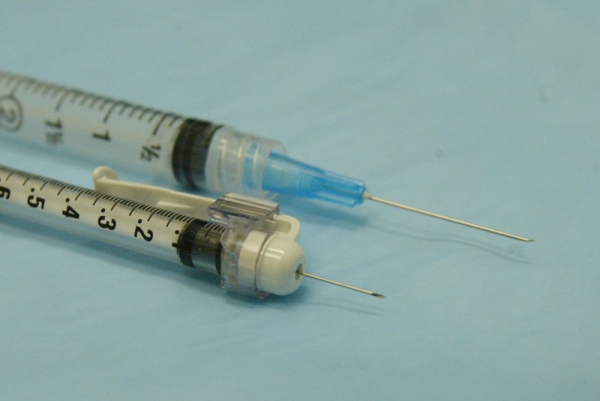
Researchers at the University of Minnesota Medical School urge those who have hepatitis C to be checked for hepatitis B immune protection. If none is present, they should get the vaccine again after treating hepatitis C. File Photo by Bill Greenblatt/UPI | License Photo
Patients with hepatitis C should consider being vaccinated again for hepatitis B, because their immune response to the initial shot may be inadequate, a new study suggests.
Researchers at the University of Minnesota Medical School urge those who have hepatitis C to be checked for hepatitis B immune protection. If none is present, they should get the vaccine again after treating hepatitis C. Advertisement
Previous research had shown that individuals with hepatitis C infection had a lower response to the hepatitis B virus (HBV) vaccine.
“This study has broad implications for public health in hepatitis-infected individuals,” Dr. Jose Debes, an associate professor in the schools of medicine and public health, said in a university news release. “It is known that the hepatitis B vaccine is not as effective in those with hepatitis C. What was not known until now is that after treating hepatitis C the hepatitis B vaccine seems to be more effective in this population. This is important, as many of these individuals are still at risk for hepatitis B infection.”
A blood-borne virus causes hepatitis C, leading to inflammation of the liver. About 58 million people worldwide have the condition, with 1.5 million new infections each year. Advertisement
No effective vaccine exists for hepatitis C.
Hepatitis B is a liver infection that can be prevented with the HBV vaccine.
To study the impact of the hepatitis B vaccine on these hepatitis C patients, researchers worked with 34 patients who previously did not respond to the HBV vaccine. They were tested for hepatitis B antibodies.
The study found that after treatment of their hepatitis C, this group had an improved response to revaccination against hepatitis B.
Having both hepatitis B and C together raises the risk of severe issues like liver cirrhosis or cancer. Getting both infections is common and risky in certain areas.
More research is needed in a larger group to assess the best time for re-vaccination and further understand the involved immune pathways, the authors said.
Study findings were recently published in the Journal of Infectious Diseases.
The World Health Organization has more on hepatitis.
